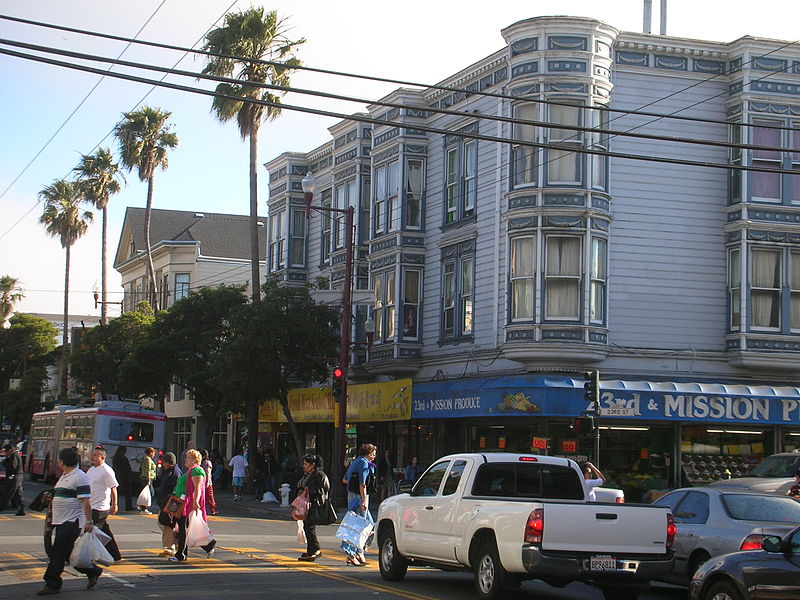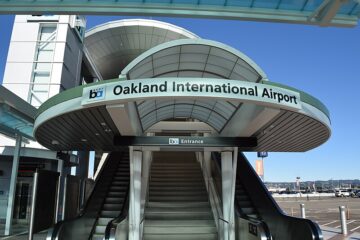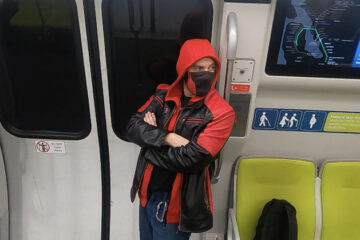Why The Mission District Street Vendor Ban Is Bad

Photo courtesy of Artico2
I’ve always looked at urban areas as places of chaotic intersectionality. If you want to live in a dense city, you have to be mentally prepared to not only seek out what is comfortable to you, but to also be accepting of others seeking out their comfort, even if it initially makes you uncomfortable.
San Francisco has imposed a 90 day vending ban because the city believes that a fencing operation is happening alongside legitimate street merchants. The problem with gentrification and the standards imposed by the modern gentry is that it not only increases the value of property, it also insists that people near these properties adjust their behaviors accordingly. In my view, that’s what is driving the crackdown on street vendors in the Mission District. The City will allow permitted merchants to sell their goods in permitted locations indoors.
I’ve written about the Mission District numerous times for several reasons. The main one is that I’m legitimately fascinated by it. While a lot of my family is from the neighborhood, I am not, and I’ve always wondered what it would have been like to grow up there. It’s also one of the few places in San Francisco that excites me. I like standing at the BART plazas and just watching groups of people interact. I like observing the tension. I like that there are Latin-American families walking with their children near tech bros, winos, weirdos, Valencia yuppies, gangbangers, graffiti kids, tourists, poets and punks. It makes me feel things, and that’s exactly what you want from a city.
It’s great. It’s the only place where these different versions of reality actually bump into each other. It’s a neighborhood of converging juxtaposition, that’s the appeal, but it appears a growing number of recent Mission District residents disagree.
It feels tired and lazy to say rich people ruin things even if it’s true, so I won’t. Instead, I will say that people who move into areas with established history, regardless of income level, and insist that these areas become reflective of their sensibilities, are a problem. And instead of working to make a place reflective of their preferences, they should just live somewhere that is better aligned with their viewpoints from the start.
Local Journalism for Working stiffs
We write for the poets, busboys, and bartenders. We cover workers, not ‘tech’, not the shiny ‘forbes 100 bullshit’. We write about the business on your corner and the beer in your hand. Join the Bay's best newsletter.
The first thing people should understand is that not everyone, even people born and raised in the United States, were privileged enough to get a college degree. This limits an individual’s employment options. There are obvious exceptions, but exceptions are…exceptional. These limitations compound if a person is foreign-born and speaks a different language. This may cause them to sell things (both legal and illegal) to get by. Some of these people are just selling food with a permit to feed their families, others are selling shit they stole from stores without a permit to feed their drug habit, and you know what? That’s fine. There are people in the world who are different from you. These people have different standards, different opinions, different lives created by different experiences. Accept it.
If you’re wealthy enough to live in the modern Mission District, it means you have options, and you chose to live in The Mission. Why? Because you wanted to experience the culture of the area. Does it make you feel uncomfortable? If so, adapt or move, but don’t change it. The world is more important than you. Someone’s need to survive is more important than your need to feel comfortable.
So please, for the love of God, stop complaining. I’m trying to help you. Because what likely attracted you to the Mission is the culture and the sense of superiority you feel for living amongst it, but that culture ceases to exist the moment you remove it. Neighborhoods are built on ideologies. Mores that are foundational to the existence of the area, and the people that mold those mores hold more weight than someone who bought themselves in at the last second.
So don’t remove it.
FOLLOW MY WRITING ON INSTAGRAM HERE
FOLLOW BAY AREA MEMES ON FACEBOOK HERE
FOLLOW BAY AREA MEMES ON INSTAGRAM HERE
PURCHASE MY BOOK HERE

Howdy! My name is Katy Atchison and I'm an Associate Editor for Broke-Ass Stuart.
I want to take the time to say thank you for supporting independent news media by reading BrokeAssstuart.com. Supporting independent news sources like Broke-Ass Stuart is vital to supporting our community because it amplifies the voices of a wide variety of diverse opinions. You also help support small businesses and local artists by sharing stories from Broke-Ass Stuart.
Because you're one of our supporters, I wanted to send over a pro-tip.
Our bi-weekly newsletter is a great way to get round ups of Broke-Ass Stuart stories, learn about new businesses in The Bay Area, find out about fun local events and be first in line for giveaways.
If you’d like to get our newsletter, signup right here, it takes 5 seconds.








